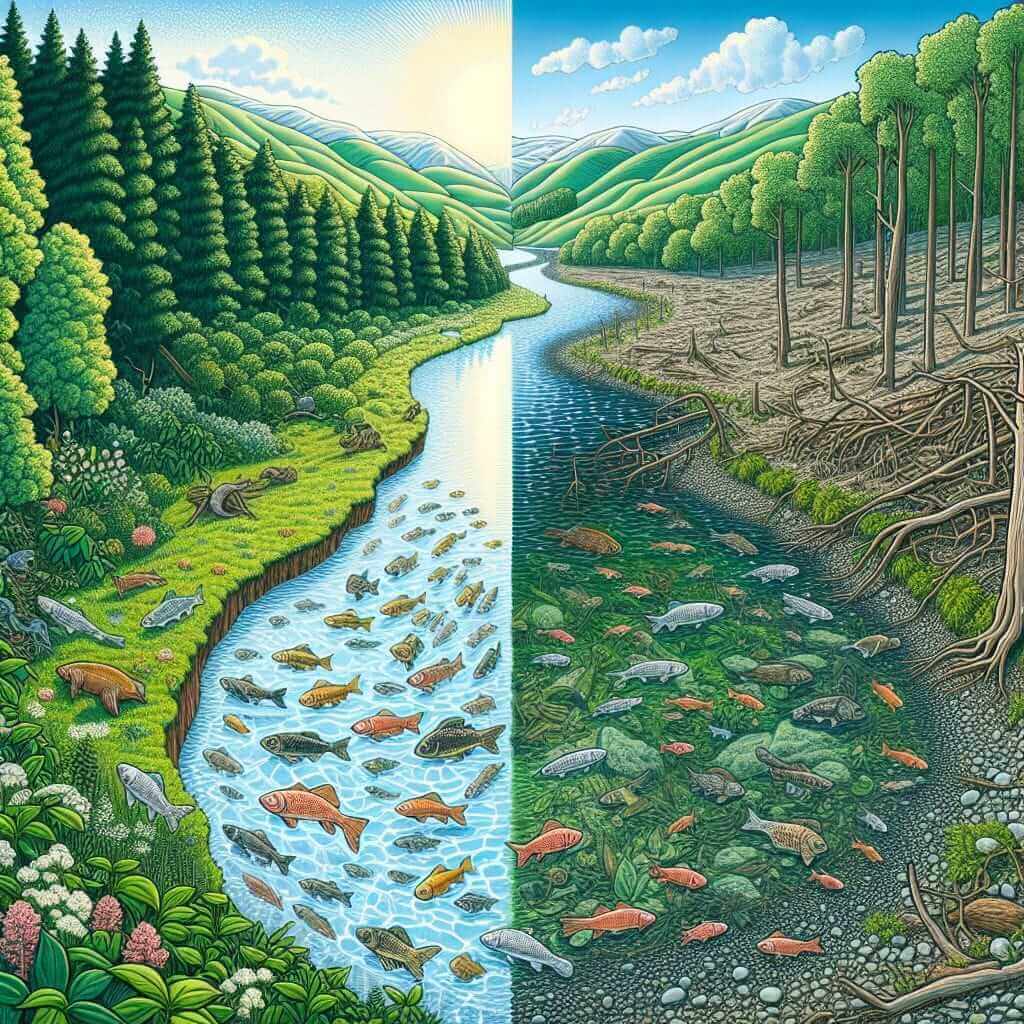The IELTS Reading test evaluates your ability to grasp complex academic texts, a crucial skill for students and professionals aiming for high IELTS bands. Given the increasing relevance of environmental issues, topics such as “How is climate change impacting global freshwater availability?” have appeared frequently in past exams. Climate change has become a focal point due to its significant impact on natural resources, earning it a place in the IELTS Reading test. Understanding this topic not only prepares you for the test but also deepens your knowledge of pressing global challenges.
Sample IELTS Reading Passage and Questions
Passage
Climate Change and Global Freshwater Availability
Climate change has a profound impact on global freshwater resources. Changes in atmospheric temperature, precipitation patterns, and ice melt are critical factors altering the availability and distribution of freshwater. In regions like the Arctic and Antarctic, glaciers are melting at unprecedented rates, contributing to rising sea levels and altering freshwater systems.
In arid zones, increased evaporation due to higher temperatures exacerbates water scarcity, affecting agriculture, industry, and human consumption. Conversely, some areas may experience excessive rainfall, leading to floods and the contamination of freshwater supplies. These changes highlight the intricate balance of the hydrological cycle and how disruptions can have far-reaching consequences.
Furthermore, the increase in global temperature has led to permafrost thawing, releasing stored carbon and methane, which in turn accelerate climate change. This feedback loop poses a severe threat to freshwater ecosystems, as it impacts water quality and availability. Freshwater lakes and rivers are also experiencing higher rates of algal blooms, which are directly linked to rising temperatures and nutrient runoff from agricultural lands.
Adaptation strategies are vital to mitigate these impacts. Innovations such as efficient water use technologies, sustainable agricultural practices, and improved water management policies are critical. International cooperation and pledges to reduce carbon emissions are also essential to curb the long-term impacts of climate change on freshwater resources.
Questions
Comprehension Questions
-
What factors are contributing to the alteration of freshwater systems in the Arctic and Antarctic?
- A. Increased deforestation
- B. Glacier melting
- C. Industrial pollution
- D. Urban development
-
Which of the following best describes the impact of higher temperatures on arid zones?
- A. Enhanced agricultural productivity
- B. Increased water scarcity
- C. Improved industrial growth
- D. Declining rainfall patterns
True/False/Not Given
-
The melting of glaciers only affects sea levels, not freshwater systems.
- A. True
- B. False
- C. Not Given
-
Permafrost thawing releases greenhouse gases that contribute to climate change.
- A. True
- B. False
- C. Not Given
Matching Headings
-
Match the headings (i-iii) to the corresponding paragraphs.
- i. The feedback loop of permafrost thawing and climate change
- ii. Adaptation strategies for freshwater sustainability
- iii. Impact of climate change on freshwater availability
Paragraph 1: iii
Paragraph 2: ii
Paragraph 3: i
Answer Keys and Explanations
-
B: The passage explicitly mentions “In regions like the Arctic and Antarctic, glaciers are melting at unprecedented rates, contributing to rising sea levels and altering freshwater systems.”
-
B: According to the passage, “In arid zones, increased evaporation due to higher temperatures exacerbates water scarcity, affecting agriculture, industry, and human consumption.”
-
B (False): The statement directly contradicts the passage, which mentions glacier melting affects both sea levels and freshwater systems.
-
A (True): The passage clearly states that “the increase in global temperature has led to permafrost thawing, releasing stored carbon and methane, which in turn accelerate climate change.”
-
- Paragraph 1: iii
- Paragraph 2: ii
- Paragraph 3: i
Common Errors and How to Avoid Them
Students often struggle with distinguishing between True/False/Not Given and Yes/No/Not Given questions. Remember, the former deals with factual statements, while the latter focuses on the writer’s opinions or claims. Carefully note the keywords in each statement and locate the corresponding information in the passage to avoid these pitfalls.
Vocabulary
List of challenging words, their types, phonetic transcription, and meanings:
- Profound (adj) /prəˈfaʊnd/ – Very great or intense
- Arid (adj) /ˈærɪd/ – Extremely dry; having little or no rain
- Exacerbate (verb) /ɪɡˈzæsərˌbeɪt/ – To make a situation worse
- Permafrost (noun) /ˈpɜːrməˌfrɔːst/ – Ground that remains frozen for two or more consecutive years
- Thaw (verb) /θɔː/ – To become unfrozen
Grammar Focus
Complex sentence structures often appear in the IELTS Reading texts. For example:
Relative clauses:
“The increase in global temperature, which significantly affects freshwater systems, has severe consequences.”
Example:
Relative pronoun: “which”
Main clause: “The increase in global temperature has severe consequences.”
Tips for High Reading Scores
- Practice Regularly: Consistently practice reading academic texts to familiarize yourself with various topics.
- Time Management: Learn to allocate time effectively to each section.
- Identify Keywords: Highlight important words and concepts in the questions to locate answers quickly.
- Guess Wisely: If unsure, make an educated guess instead of leaving blanks.
- Review and Revise: Regularly review mistakes to understand your weak points and avoid them.

By understanding how climate change impacts global freshwater availability, not only will you be well-prepared for related IELTS Reading passages, but you will also gain a deeper awareness of vital environmental challenges. Keep practicing, and good luck with your exams!